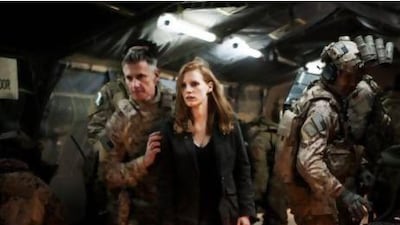The film critic Roger Ebert once remarked: "No good movie is too long and no bad movie is short enough." While this may have been true a few years ago (although Gigli did just scrape a somewhat painful two hours, being neither short nor good), anyone who has sat through some of the current Oscars front-runners without having used the bathroom first might have a different opinion.
If you've watched Django Unchained, Les Misérables, The Hobbit: An Unexpected Journey, Zero Dark Thirty and Lincoln you'll have clocked up an astonishing 799 minutes - more than 17 hours - of viewing time. And that's before trailers (which, if you saw the one for Star Trek into Darkness, are also getting long enough to make cinemagoers - this one in particular - worry that they're sitting in the wrong screen).
But does a film's length dampen its experience, or indeed its success? Clearly not the latter, in the case of those listed above, which have performed with distinction at the box office, despite having left buttocks sore across the world (The Hobbit is closing in on US$1 billion).
The 171-minute runtime of Cloud Atlas did, however, contribute to its miserable earnings in North America, according to Variety's film editor Josh L Dickey, who added that "anything beyond two-and-a-half hours was inexcusable". Others have suggested the adaptation of the best-selling book was simply not very good.
It's certainly true that film lengths are creeping upwards. According to statistics, the average length of the 10 highest-earning films of 2012 was two hours, 10 minutes and 30 seconds, up 12 and a half minutes from 2002. Going back another decade, the top five films of 1992 averaged out at 118.4 minutes compared with last year's 141.6. Disney's Aladdin, the highest-grossing film 20 years ago, was just 90 minutes long. The Avengers gobbled up almost another hour at 143 minutes. While critics with their notebooks and stopwatches might have been feeling the strain (they do spend quite a lot of time in the cinema), it seems the buttock-busting nature of many recent films hasn't been cause for too much concern among fans.
"I have no issues with movies being long, so long as the story demands it or the director can keep you interested," says Abbas Jaffar Ali, the director of tbreak media, which runs the IGN Middle East Movies blog. "For example Django Unchained, The Dark Knight Rises and The Lord of the Rings were all lengthy movies, but didn't feel long."
Michael Maksoudian, the man behind Movie Blogbuster, thinks that films are actually bucking the general trend of society. "People are becoming more impatient, yet they're willing to sit around and watch these films," he says, pointing to the success of Avatar (161 minutes) and, more recently, The Dark Knight Rises (165 minutes).
The Hobbit, however, has been singled out as a film that probably went on too long (although Peter Jackson does seem incapable of making anything you could watch on a short-haul flight these days). And despite its numerous plaudits, Django Unchained has also come under fire for being about 20 minutes too long (the last 20 minutes in particular).
But it seems that as long as people are going to see such films, directors are going to keep churning such epics out.
At this rate, if the human race is still making films by the end of the century (and hasn't perished in manners largely detailed in said films), moviegoers are going to be required to perform circulation exercises throughout to avoid getting deep vein thrombosis. In the meantime, let's just hope Peter Jackson doesn't attempt a cinematic adaptation of Proust's In Search of Lost Time.
UAE film fans can begin watching coverage of the 85th Academy Awards on Fox Movies beginning at 2am on February 25.
Follow us

